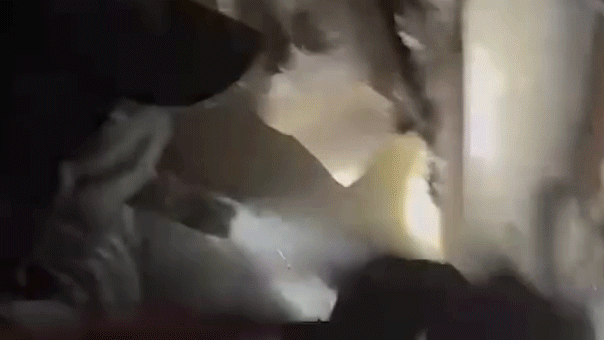OKLAHOMA CITY – A United Nations official who focuses on the status of indigenous peoples called on state, federal and tribal authorities Tuesday to ensure that the rights of a nearly 4-year-old girl in the middle of a custody dispute are considered.
James Anaya said in a statement that authorities should consider Veronica's rights to maintain her "cultural identity" as a member of the Cherokee Nation.
Veronica's father, Dusten Brown, who is a member of the Cherokee Nation, has been fighting for custody of the girl with a South Carolina couple who adopted her.
"Veronica's human rights as a child and as (a) member of the Cherokee Nation, an indigenous people, should be fully and adequately considered in the ongoing judicial and administrative proceedings that will determine her future upbringing," Anaya said. "The individual and collective rights of all indigenous children, their families and indigenous peoples must be protected throughout the United States."
Veronica's birth mother, who is not Native American, was pregnant when she put the girl up for adoption, and the South Carolina couple, Matt and Melanie Capobianco, had been lined up to receive custody since 2009. But Brown and his family claimed the Indian Child Welfare Act mandated that the child be raised within the Cherokee Nation, and he won custody when the girl was 2.
The Indian Child Welfare Act was passed in 1978 with the intent of reducing the high rates of Native American children being adopted by non-Native American families. A South Carolina court cited the law when awarding Veronica to Brown in 2011, but the U.S. Supreme Court said this summer the law did not apply in Brown's case because he had been absent from the child's life.
A South Carolina family court judge then ruled in July that custody be awarded to the Capobiancos and ordered Brown to hand Veronica over. Brown refused, and South Carolina authorities charged Brown with custodial interference after he failed to show up to a court-ordered meeting. Brown is fighting extradition to South Carolina to face the charge.
Two Oklahoma courts have certified the South Carolina order giving custody to the Capobiancos, but Brown has appealed those rulings to the Oklahoma Supreme Court, which issued an emergency stay keeping the girl with Brown for the time being.
Lori Alvino McGill, an attorney for the Capobiancos, said the couple have always expressed a desire to share with Veronica her heritage and that Brown is unlawfully holding the little girl.
"No one seems to be worried about Veronica maintaining any connection to her Hispanic roots, even though Veronica's birth mother is predominantly Hispanic," she said in a statement. "To be very clear, right now, the only violation of Veronica's rights is happening because Veronica is being unlawfully detained from her only lawful parents — after months of forced separation from them. In this country, we call that kidnapping, whether you are biologically related to the child or not."
In 2012, Anaya issued a report saying that the removal and separation of Native American children from indigenous environments is an ongoing issue and concern.
"While past practices of removal of Indian children from their families and communities have been partially blunted by passage of the Indian Child Welfare Act in 1978, this law continues to face barriers to its implementation," Anaya said.
__
Follow Kristi Eaton on Twitter at http://twitter.com/kristieaton .







































